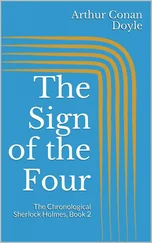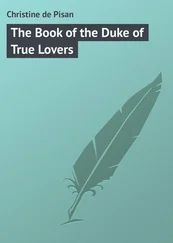Arthur Wellesley Wellington - The Letters of the Duke of Wellington to Miss J., 1834-1851
Здесь есть возможность читать онлайн «Arthur Wellesley Wellington - The Letters of the Duke of Wellington to Miss J., 1834-1851» — ознакомительный отрывок электронной книги совершенно бесплатно, а после прочтения отрывка купить полную версию. В некоторых случаях можно слушать аудио, скачать через торрент в формате fb2 и присутствует краткое содержание. Жанр: Биографии и Мемуары, foreign_antique, на английском языке. Описание произведения, (предисловие) а так же отзывы посетителей доступны на портале библиотеки ЛибКат.
- Название:The Letters of the Duke of Wellington to Miss J., 1834-1851
- Автор:
- Жанр:
- Год:неизвестен
- ISBN:нет данных
- Рейтинг книги:5 / 5. Голосов: 1
-
Избранное:Добавить в избранное
- Отзывы:
-
Ваша оценка:
- 100
- 1
- 2
- 3
- 4
- 5
The Letters of the Duke of Wellington to Miss J., 1834-1851: краткое содержание, описание и аннотация
Предлагаем к чтению аннотацию, описание, краткое содержание или предисловие (зависит от того, что написал сам автор книги «The Letters of the Duke of Wellington to Miss J., 1834-1851»). Если вы не нашли необходимую информацию о книге — напишите в комментариях, мы постараемся отыскать её.
The Letters of the Duke of Wellington to Miss J., 1834-1851 — читать онлайн ознакомительный отрывок
Ниже представлен текст книги, разбитый по страницам. Система сохранения места последней прочитанной страницы, позволяет с удобством читать онлайн бесплатно книгу «The Letters of the Duke of Wellington to Miss J., 1834-1851», без необходимости каждый раз заново искать на чём Вы остановились. Поставьте закладку, и сможете в любой момент перейти на страницу, на которой закончили чтение.
Интервал:
Закладка:
CHAPTER IV.
SMOOTH WATERS
My dear Miss J.,—I received your Note. We perfectly understand each other; and with your permission I will call upon you to-morrow at three o'clock.
There is only one point that I wish to explain in reference to our last meeting. There might have been a difference of Manner. There was none of feeling.
You told me that you had written to me; and I certainly was anxious to possess your Letters. You certainly wished to take them out of the Paquet; but if I had thought that your reluctance to give them was deeply felt, you may rely upon it that I would not have pressed to have them.
At all events my perusal of them has occasioned an explanation which can do no Harm.
Believe me ever Yours most sincerely W.From this it appears that the personal interviews had recommenced. The letters now follow one another closely.
London, June 15, 1835.My dear Miss J.,—I have received your Letter of this Day, for which I return many thanks.
I was not able to go to see you last week as I intended. I was confined to my Home by Indisposition for some days; and I was much occupied. I am going out of town to-morrow. But I hope to be able to go to see [ sic ] on Saturday at three o'clock if you should not at that time have left town for the Seaside?
I will bring with me the Letters and Books which you lent me. I have read that one which you wish that I should return to you.
If you should go before I shall see you again I hope that you will let me know where.
Believe me Ever Yours most sincerely Wellington.Miss J. states that the book here alluded to was an account of the conversion of the criminal Cook, and touches upon her instrumentality in bringing about this result.
London, June 22nd, 1835.My dear Miss J.,—I have read all your Letters since I saw you on Saturday. Why do you not send each of them to me when you write it?
I think that you will have perceived on Saturday that you was mistaken in the Notion under which you wrote some of them.
We may differ in opinion and I may be in Error. But I assure you that I cannot feel otherwise than grateful to you for your kindness to me; and respect and veneration for the Motives for it.
Let me know before you go out of town that I may not misdirect a Letter to you.
Believe me Ever Yours most sincerely, Wellington.In the latter part of June Miss J. went to Ramsgate. The Duke's letter of July 1st is directed there:—
London, July 1st, 1835.My dear Miss J.,—I am very sorry if in my Letter of Monday I should have said a Word which could have hurt your feelings. I think that by this time you ought to be convinced that I could not intend to do so.
I might have done so erroneously. I might have been misled by circumstances. But I could not willingly hurt the feelings of any body.
In this particular case you forget that you asked the Question whether your letters were not overweight. I told you that they were.
I likewise informed you of a Rule which we are all under the necessity of adopting; that is of returning Letters over weight; because too many Persons are in the habit of thinking that they may inclose their Letters to a well known Person; and the Charge becomes enormous. Under these circumstances my Porter has the usual order not to take in Letters overweight; which he generally returns; unless I should happen to be in the House when he enquires. I stated the fact very shortly, as I generally do; in answer to a question from yourself; and I pointed out to you that if you desired to write to me more than you could put in two Sheets, you should put your Letter in two or three or more covers.
You must not be so susceptible. Rely upon it, that many many Years will pass over your Head; before I shall intentionally offend you.
Believe me Ever Yours most sincerely W. July 7, 1835.I have received your two Letters My Dear Miss J., and according to your desire I write immediately.
My writing is not very legible by a person not accustomed to it. But I never could have intended to apply the word mistrust to you.
You expressed apprehension that your Letters might be seen by a third person; as they might have been returned to the Post Office.
I did not write the word relatives but relations , and that not in the meaning of relatives. I adverted to your ordinary relations with other persons, which I said must be attended by some observance of their Habits and Customs.
However, there is an end of this matter. I hope that your writing to me will never be disturbed again by any checks or difficulties; or expressions which I assure you can never be intended to convey any meaning but one of kindness towards you, and of admiration of your Talents, your character and your Devotion to what is good. Believe me Ever Yours most sincerely
W.Of the following letters Miss J. gives extracts in her Diary. There are few of his epistles in which the Duke fails to express his thanks to Miss J. for her kindness in writing to him. However gratifying this may have been to her, the constant repetition becomes monotonous to the indifferent reader. Miss J. writes:—
"The next letter from His Grace is dated July 11th, 1835, in which he writes—'You are mistaken in thinking that I at all disapprove of the independence of character and conduct which I had observed. I hope that you may never feel otherwise towards me than in the State of Independence to say and write to me whatever your mind may suggest.'
"In his letter of July 18th the Duke writes—'I thank you for your Letter received this morning. What I meant by reflection was not to call your attention to anything particularly passing in the world, but to the impressions made upon your own mind by any circumstance you might have observed.–You will tell me that God will direct you. So He will. But He has given us a Mind, the power of comparing and reflecting, of deciding what is true and what is false and He requires us to exercise our judgment in Matters on which He has given us the capability of forming judgment. You'll tell me that I am acting your part and teaching you instead of attending to you. But I beg you observe it is only in explanation of what I wrote to you in a former letter upon the subject of your change of opinion respecting an individual at Ramsgate.'
"The Duke here refers to a Preacher who had spoken in the open air at Ramsgate of whom I had previously written."
"The Duke's next letter implies that he understood I was about to return to Town, inducing him to express an intention of calling on me but such was not the will of The Lord of Lords, therefore I did not accede to it, but proceeded expeditiously from Ramsgate to Harrowgate. Here His Grace's letters followed me."
London, July 24th, 1835.My dear Miss J.,—I received your Letter by the Post written on Wednesday; and have this day received that written in London to inform me that you was about to go to Harrowgate. I am much obliged to you for both.
It is true that I am in the habit of writing Answers to all Letters. But I feel great satisfaction in writing to some; to those in particular from whom I am desirous of receiving Letters; and who express a Desire to hear from me.
I am very glad that you corrected your first Impressions respecting your Preacher. I believe that we cannot too frequently pass in review our opinions upon what passes before us. We shall find ourselves frequently in Error.
I sincerely hope that the Waters of Harrowgate, may have the effect of restoring Your Health entirely. Believe me Ever Yours most sincerely
W. London, August 3, 1835.My dear Miss J.,—I have received your letter of the 31st and I am really much concerned to learn that I have again created a feeling of displeasure in your Mind by having omitted to notice the Inconvenience which you felt upon your Journey to Harrowgate.
Читать дальшеИнтервал:
Закладка:
Похожие книги на «The Letters of the Duke of Wellington to Miss J., 1834-1851»
Представляем Вашему вниманию похожие книги на «The Letters of the Duke of Wellington to Miss J., 1834-1851» списком для выбора. Мы отобрали схожую по названию и смыслу литературу в надежде предоставить читателям больше вариантов отыскать новые, интересные, ещё непрочитанные произведения.
Обсуждение, отзывы о книге «The Letters of the Duke of Wellington to Miss J., 1834-1851» и просто собственные мнения читателей. Оставьте ваши комментарии, напишите, что Вы думаете о произведении, его смысле или главных героях. Укажите что конкретно понравилось, а что нет, и почему Вы так считаете.












